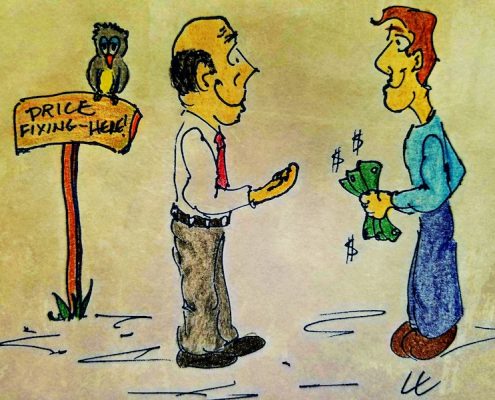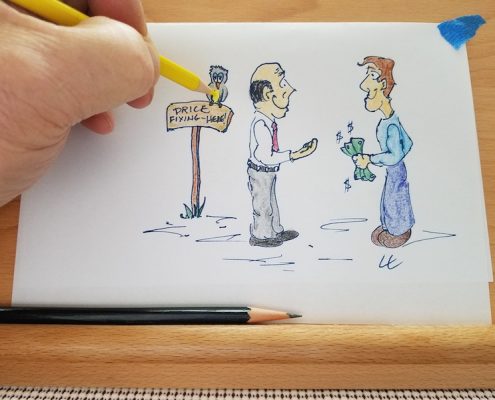Collusion is a word we’ve all come to hear on a regular basis, if not weekly daily hourly minute-by minute … okay, practically every second. But what is collusion? Is it the proper terminology when speaking about an incident involving two people, one of whom is seeking political office? Well …
Please, this is not a political statement, nor am I supporting or not supporting anyone. This is strictly a factual piece. There is nothing hidden between the lines!! NO political comments, please.
According to Black’s Law Dictionary (a standard): Collusion. n. where two persons (or business entities through their officers or other employees) enter into a deceitful agreement, usually secret, to defraud and/or gain an unfair advantage over a third party, competitors, consumers or those with whom they are negotiating.
*The above definition could be used to to describe nearly ALL political campaigns and campaigners throughout history!
The crime of collusion is associated with illegal business practices and does not apply to elections. Instead, this particular crime (collusion) falls under the heading of Antitrust laws (also called competition laws), the statutes developed by the U.S. Government to protect consumers from shady business practices, thus ensuring that just and fair competition exists in the marketplace.
The Sherman Act, 1890 (click to read)
*Note that I highlighted the word “crime” above, because that’s what we’re talking about here today, a crime, such as Price-Fixing, or Bribery of Public Officials. These two are indeed Crimes of collusion.

So, is collusion a crime when it involves elections? Well …
- Taking advantage of what another person or group does during an election is not illegal. Sure, it’s a bit of political “not-so-niceness,” but it is not a federal crime to do so.
- Asking someone to release information about a political opponent is not illegal unless the party asking was involved in illegally obtaining the information in question (wiretaps, illegally recorded conversations, etc.). Still, the act of asking to release information is not in itself a federal crime.
- A person or group of people supporting a political candidate is not a federal crime, even if that person(s) releases potentially damaging information about politicians running for office (favoring one above the other). Not illegal = no crime. For example, you’re running for the office of county sheriff and a person you encounter tells you they have possibly damaging information about your political opponent. You ask them to show the dirt to the world and they do. After all is said and done, you win the election. Asking the person to release the information is not a crime. Doing so is no different than a political party digging up dirt on their opponents and then running the juicy tidbits in TV or media ads and articles. Again, no crime, and definitely not collusion as it relates to federal law.
Remember, we’re addressing the specific definition of collusion as it relates to elections, not a matter of, well, stuff I do not discuss here. So please don’t make this into something it’s not!
The word collusion has sort of evolved to loosely and unofficially encompass a variety of non-related offenses. It’s so watered down that it’s almost reached the point of being a slang term, much like the word “Mace”is often used to incorrectly identify all chemical sprays used by police. Not so. Mace is a trademarked name of a company that manufactures a variety of merchandise under the same name.
*To those of you who’ve asked … yes, I’m behind the goofy drawings. And yes, I purposely make them crude and and a bit off-kilter. Why? Because I, too, am goofy.

Again, I’m begging you to please not make this political or a discussion or argument about anything outside the text above. I’m merely pointing out the law as it relates to a specific topic. I take no sides. My goal and purpose for much of what I do—I’m dedicated to helping writers write believable make-believe.
*All factors in a criminal case are considered. Sometimes, in order to achieve a conviction, it takes the piecing together of multiple pieces of evidence—the totality of circumstances. This may include circumstantial evidence, if related.


